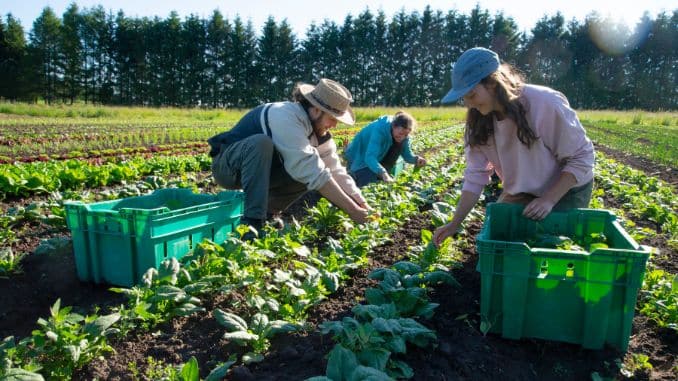When it comes to choosing healthy food, many people are turning to organic products for their proven health benefits and minimal environmental impact.
Organic farming emphasizes natural practices such as improving soil fertility and avoiding synthetic pesticides [2].
Eating organic is more than a trend—it's a conscientious choice for both personal health and environmental well-being.
Let’s break down the benefits of organic foods and how they compare to conventional options.
1. Reduced Chemical Exposure
Organic farming avoids synthetic pesticides, herbicides, and fertilizers, minimizing your exposure to harmful residues.
2. More Nutrients
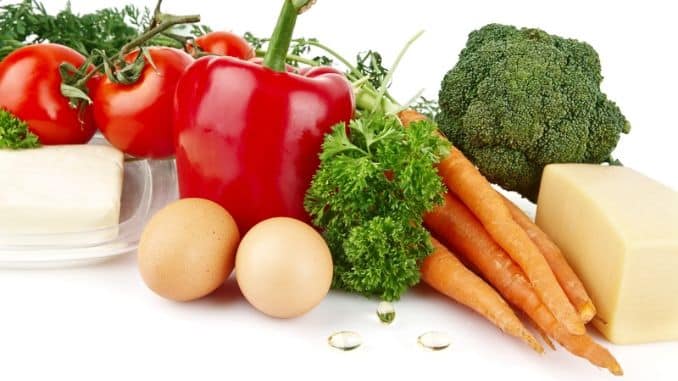
Some studies suggest organic produce may have higher levels of vitamins, minerals, and antioxidants compared to conventionally grown foods.
3. No Synthetic Fertilizers
Organic farming relies on natural compost and manure, promoting soil health without harmful chemical fertilizers.
4. Organic Farming Boosts Biodiversity
By avoiding chemicals and preserving natural habitats, organic farms encourage the growth of diverse plant and animal species.
5. No Artificial Colors And Preservatives

Organic foods are free from synthetic additives, making them healthier and closer to their natural state.
6. Reduction In Pesticide Consumption
Eating organic reduces your intake of pesticide residues, which can be harmful over time.
7. No GMOs
Organic foods [1] are grown without genetically modified organisms, ensuring the food remains in its natural form.
Dr. Michelle Perro, a pediatrician and co-author of What’s Making Our Children Sick?, is an advocate for addressing health concerns related to GMOs. She emphasizes:
“The potential risks of GMOs go beyond the technology itself. There are serious concerns about long-term health impacts and the increased use of herbicides like glyphosate, which has been linked to various health issues. We must adopt a precautionary approach to protect our food supply and public health.”
8. Antioxidant Content
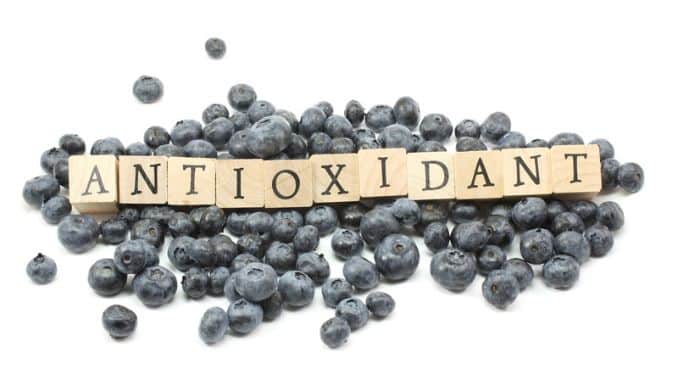
Organic produce tends to have higher levels of antioxidants, which protect your body from cell damage. A study found that organic crops have higher antioxidant levels compared to conventional crops.
9. No Sewage Sludge
Organic farms avoid using treated sewage waste as fertilizer, keeping the soil and food free from contaminants.
10. Support Local Farmers

Buying organic often means supporting small-scale, local farmers who prioritize sustainable practices.
11. Fewer Antibiotics
Organic meat and dairy come from animals raised without routine antibiotic use, reducing antibiotic resistance risks.
12. Organic Protects Animal Health
Animals on organic farms live in more humane conditions with access to pasture and natural diets.
13. Fresher Food
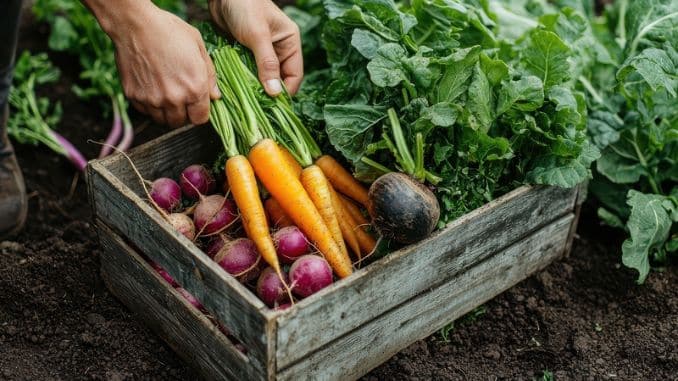
Organic foods are often sold closer to harvest time, making them fresher and more nutrient-rich.
14. Outstanding Flavor
Many find organic produce tastes better due to richer soil and natural growing practices.
Here’s a comparison between Organic Farming and Conventional Farming in table format:
| Aspect | Organic Farming | Conventional Farming |
| Use of Chemicals | No synthetic pesticides, herbicides, or fertilizers | Extensive use of synthetic chemicals for pest control and fertilization |
| Genetically Modified Organisms (GMOs) | Not allowed | Commonly used for higher yield and resistance |
| Soil Fertility | Uses natural fertilizers like compost, manure, and green cover crops to enrich the soil. | Relies on chemical fertilizers, which can deplete soil over time |
| Pesticide Residues | Minimal or none | Higher levels of pesticide residues |
| Animal Welfare | High standards; animals have access to the outdoors and natural diets | Lower standards; often confined spaces and routine antibiotics |
| Environmental Impact | Eco-friendly, supports biodiversity, reduces pollution | Greater environmental impact due to chemical runoff and intensive practices |
| Additives and Preservatives | No artificial colors, flavors, or preservatives | Allowed in food processing |
| Nutritional Quality | Often higher in antioxidants and certain nutrients | May have fewer nutrients due to intensive production methods |
| Cost | Typically more expensive due to labor-intensive practices | More affordable due to large-scale production |
| Flavor and Freshness | Often fresher with better taste due to natural growing conditions | May have fewer nutrients due to intensive production methods |
What Makes Organic Food Different?
Organic food production grows plants without synthetic chemicals, artificial additives, or genetic modification.
By opting for organic—from organic milk and whole foods to dairy products and fresh produce—you avoid harmful chemicals, GMOs [3], and growth hormones.
This approach supports local farmers, enhances soil health, and reduces exposure to pesticide residues.
Unlike conventional food, organic farming relies on natural processes like composting, crop rotation, and biological pest control to maintain soil fertility and protect crops.
Choosing an organic diet and reading food labels carefully allows you to enjoy the measurable benefits of fresher, cleaner, and more nutritious foods while contributing to a more sustainable food industry.
Health Benefits Of Eating Organic
One of the biggest reasons people go organic is for better health. Organic foods are typically:
- Higher in nutrients – Some studies suggest organic foods may have slightly higher levels of certain nutrients like antioxidants, but results vary.
- Free from harmful chemicals – No synthetic pesticides or additives that can build up in the body.
- Better for sensitive bodies – Ideal for kids, pregnant women, and those with food sensitivities.
Organic Food Tastes Better
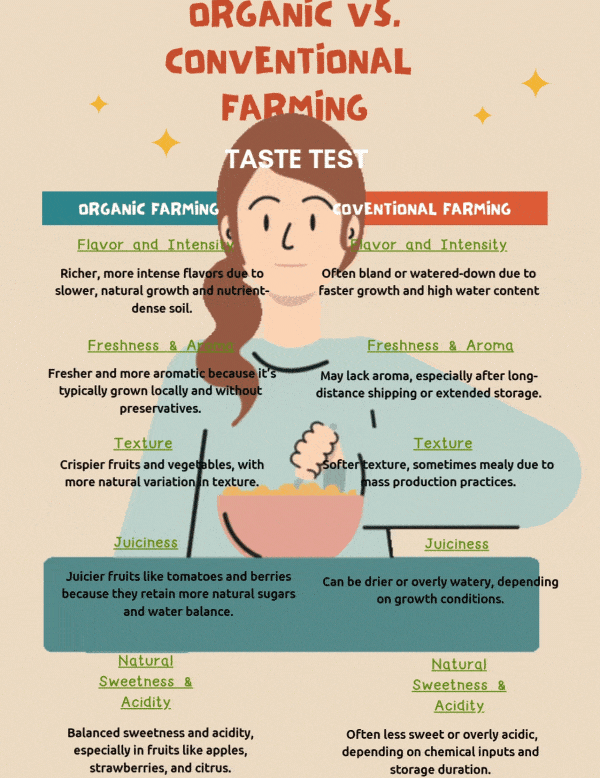
Yes, it’s true! Organic produce is often fresher since it doesn’t contain preservatives to extend shelf life. Plus, fruits and vegetables grown in rich, chemical-free soil tend to be more flavorful.
Environmental Benefits
Choosing organic food helps protect the planet. Organic farming is more sustainable and eco-friendly.
- Reduces pollution – Minimizing chemical runoff into water bodies, protecting aquatic ecosystems, and preserving bee populations critical for pollination.
- Supports healthy soil – Prevents erosion and promotes biodiversity.
- Protects wildlife – Fewer chemicals mean safer habitats for birds, bees, and other animals.
Dr. John Reganold, a respected American soil scientist and agroecologist: “Organic farming systems build healthy soils that store carbon, retain water, and improve crop resilience to extreme weather. While conventional systems may produce higher yields in some cases, organic systems often outperform them in terms of environmental benefits and long-term sustainability.”
Dr. Reganold has conducted decades of research comparing organic and conventional systems and highlights the balance between productivity, soil health, and environmental impact as key factors in this debate.
Is Organic Always The Best Choice?
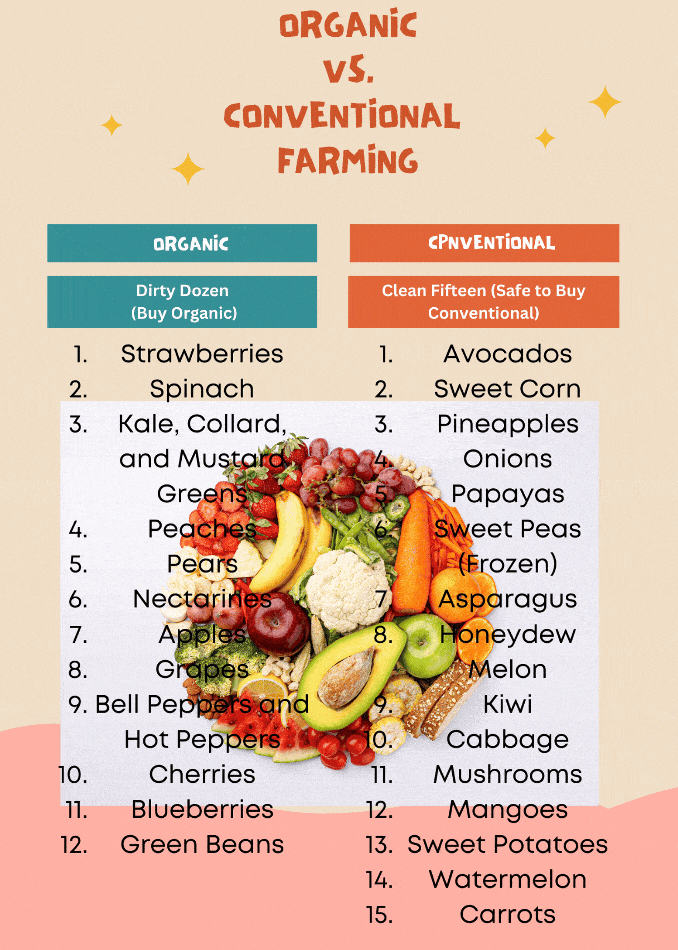
Organic food has clear health benefits, but it’s not always affordable for every budget.
To get the most value, focus on buying organic for the Dirty Dozen—produce with the highest pesticide residues, like strawberries, spinach, and apples.
For items like avocados, sweet corn, and pineapples, conventional options are usually safe. Prioritize organic milk, dairy products, and foods you consume regularly.
Read food labels carefully, shop at farmers' markets, and choose certified organic when it matters most for your health and budget.
The Takeaway
Switching to organic foods is a simple yet impactful way to improve your health, protect the environment, and reduce exposure to toxic chemicals.
Organic farming practices help build healthy soil, boost soil quality, and produce nutrient-rich food without synthetic fertilizers or harmful pesticides.
Whether you’re shopping at grocery stores, exploring farmers' markets, or supporting local food producers, choosing certified organic options can lead to long-term benefits for both you and the planet.
So, next time you shop, prioritize organically grown produce and GMO-free foods to enjoy their unmatched flavor, improved nutrition, and overall positive impact on public health and environmental health.
While GMOs are considered safe by many regulatory agencies, organic farming avoids them due to consumer preference for natural growing methods and environmental concerns.
If you can afford it, going organic is a win for your health and the environment. Even small steps—like switching to organic for certain foods—can make a big difference.
Ready to make the switch? Start by buying organic versions of the foods you eat most often. Your body (and the planet) will thank you!
Transform your health today with our Anti-Inflammatory Cookbook Bundle! Discover delicious, healing recipes that can help reduce inflammation and boost your energy. Embrace a healthier lifestyle—grab your bundle now and start feeling better from the inside out!
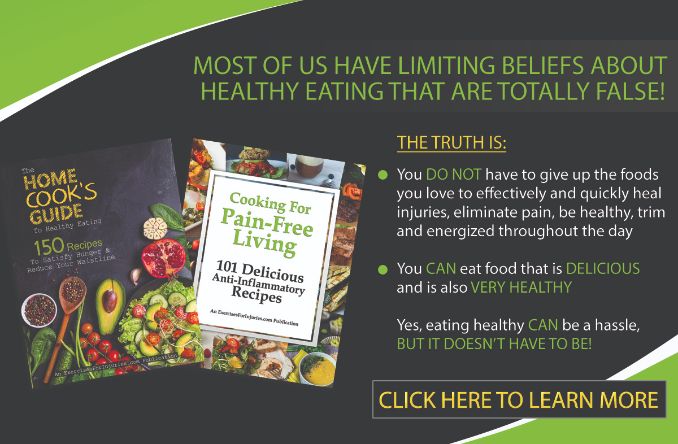
FAQ's
Is Organic Food Healthier Than Conventional Food?
Organic food is often richer in certain nutrients like antioxidants and omega-3 fatty acids, and it reduces exposure to synthetic pesticides and toxic chemicals, promoting better human health.
What Are The Health Benefits Of Eating Organic Food?
Eating organic may lower the risk of pesticide-related health issues, improve overall nutrition intake, reduce exposure to GMOs, and support public health through sustainable practices.
Are Organic Foods Completely Pesticide-Free?
Organic farming uses natural pesticides derived from plants, minerals, or microorganisms, which are typically less harmful than synthetic options.
How Is Organic Milk Different From Regular Milk?
Yes, organic milk often contains higher levels of omega-3 fatty acids and is produced without growth hormones, antibiotics, or fed animal byproducts, ensuring cleaner and safer consumption.
How DoAnti-Inflammatory Cookbook Bundle (EFISP) I Know If Food Is Truly Organic?
Look for the certified organic label on the packaging. This ensures the product meets strict organic farming standards and is free from GMOs, synthetic fertilizers, and harmful additives.

